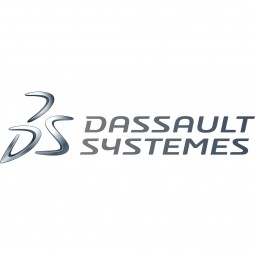Customer Company Size
Large Corporate
Region
- Asia
Country
- China
Product
- SIMULIA Abaqus Knee Simulator (AKS)
Tech Stack
- Finite Element Analysis (FEA)
Implementation Scale
- Pilot projects
Impact Metrics
- Cost Savings
- Productivity Improvements
Technology Category
- Analytics & Modeling - Digital Twin / Simulation
Applicable Industries
- Healthcare & Hospitals
- Life Sciences
Applicable Functions
- Product Research & Development
Use Cases
- Digital Twin
- Virtual Prototyping & Product Testing
Services
- Data Science Services
About The Customer
Shanghai MicroPort Orthopedics is a leading developer and supplier of orthopedic medical devices and implants in China. The company is looking to expand its product line to include Total Knee Replacement (TKR) implants, given the huge market for orthopedic implants. MicroPort is in the initial proof-of-concept phase and is evaluating what kind of TKR implant model to focus on going forward. The company strongly believes in conducting its own research and development to bring out innovative products.
The Challenge
Shanghai MicroPort Orthopedics was looking to expand into new orthopedic products. They were particularly interested in total knee replacement (TKR) implants and wanted to compare the performance of fixed-bearing and mobile-bearing designs. The company wanted to conduct its own research and development to bring out innovative products. However, traditional methods of testing prototype designs in the lab using a bench-top device called the Kansas Knee Simulator (KKS) were costly and time-consuming.
The Solution
MicroPort chose the SIMULIA Abaqus Knee Simulator (AKS) from Dassault Systèmes’ 3DEXPERIENCE technology. The AKS is a validated tool that can conduct basic-to-advanced knee implant analyses. It semi-automatically creates advanced explicit analyses, significantly increasing simulation efficiency. The AKS was used to evaluate the fixed bearing (FB) and mobile bearing (MB) configurations of the TKR implants. The simulations provided insight into the merits of both fixed and mobile bearing knee implants. The AKS established a new, shorter path at MicroPort for testing and analyzing designs.
Operational Impact
Quantitative Benefit

Case Study missing?
Start adding your own!
Register with your work email and create a new case study profile for your business.
Related Case Studies.

Case Study
Hospital Inventory Management
The hospital supply chain team is responsible for ensuring that the right medical supplies are readily available to clinicians when and where needed, and to do so in the most efficient manner possible. However, many of the systems and processes in use at the cancer center for supply chain management were not best suited to support these goals. Barcoding technology, a commonly used method for inventory management of medical supplies, is labor intensive, time consuming, does not provide real-time visibility into inventory levels and can be prone to error. Consequently, the lack of accurate and real-time visibility into inventory levels across multiple supply rooms in multiple hospital facilities creates additional inefficiency in the system causing over-ordering, hoarding, and wasted supplies. Other sources of waste and cost were also identified as candidates for improvement. Existing systems and processes did not provide adequate security for high-cost inventory within the hospital, which was another driver of cost. A lack of visibility into expiration dates for supplies resulted in supplies being wasted due to past expiry dates. Storage of supplies was also a key consideration given the location of the cancer center’s facilities in a dense urban setting, where space is always at a premium. In order to address the challenges outlined above, the hospital sought a solution that would provide real-time inventory information with high levels of accuracy, reduce the level of manual effort required and enable data driven decision making to ensure that the right supplies were readily available to clinicians in the right location at the right time.

Case Study
Gas Pipeline Monitoring System for Hospitals
This system integrator focuses on providing centralized gas pipeline monitoring systems for hospitals. The service they provide makes it possible for hospitals to reduce both maintenance and labor costs. Since hospitals may not have an existing network suitable for this type of system, GPRS communication provides an easy and ready-to-use solution for remote, distributed monitoring systems System Requirements - GPRS communication - Seamless connection with SCADA software - Simple, front-end control capability - Expandable I/O channels - Combine AI, DI, and DO channels

Case Study
Driving Digital Transformations for Vitro Diagnostic Medical Devices
Diagnostic devices play a vital role in helping to improve healthcare delivery. In fact, an estimated 60 percent of the world’s medical decisions are made with support from in vitrodiagnostics (IVD) solutions, such as those provided by Roche Diagnostics, an industry leader. As the demand for medical diagnostic services grows rapidly in hospitals and clinics across China, so does the market for IVD solutions. In addition, the typically high cost of these diagnostic devices means that comprehensive post-sales services are needed. Wanteed to improve three portions of thr IVD:1. Remotely monitor and manage IVD devices as fixed assets.2. Optimizing device availability with predictive maintenance.3. Recommending the best IVD solution for a customer’s needs.

Case Study
HaemoCloud Global Blood Management System
1) Deliver a connected digital product system to protect and increase the differentiated value of Haemonetics blood and plasma solutions. 2) Improve patient outcomes by increasing the efficiency of blood supply flows. 3) Navigate and satisfy a complex web of global regulatory compliance requirements. 4) Reduce costly and labor-intensive maintenance procedures.

Case Study
Harnessing real-time data to give a holistic picture of patient health
Every day, vast quantities of data are collected about patients as they pass through health service organizations—from operational data such as treatment history and medications to physiological data captured by medical devices. The insights hidden within this treasure trove of data can be used to support more personalized treatments, more accurate diagnosis and more advanced preparative care. But since the information is generated faster than most organizations can consume it, unlocking the power of this big data can be a struggle. This type of predictive approach not only improves patient care—it also helps to reduce costs, because in the healthcare industry, prevention is almost always more cost-effective than treatment. However, collecting, analyzing and presenting these data-streams in a way that clinicians can easily understand can pose a significant technical challenge.




